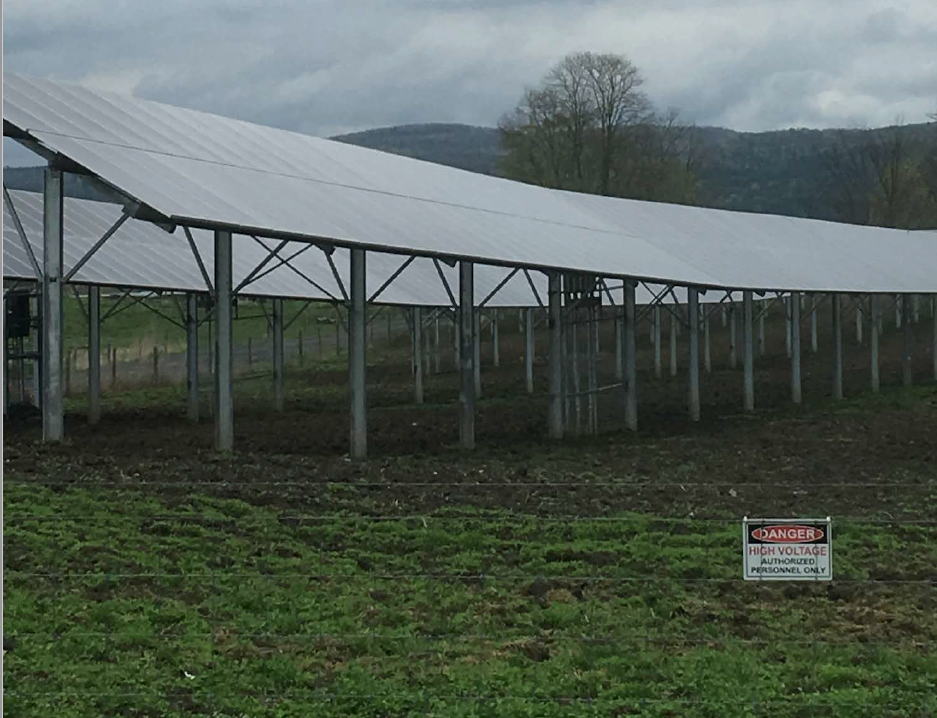The U.S. agriculture industry is taking a hit around the country. Midwest farmers are seeing a trend in bankruptcy over this past year. The farm debt in the Midwest is expected to hit over $400 billion, which is a bad sign for other farmers around the country. What is the solution? As the world starts to turn towards renewable resources, is the farming industry thinking the same?
How Solar Energy Can Help Farmers
Agriculture can benefit from solar energy in many different ways. We need to start thinking of new ways to help farms reduce energy costs and save them from debt and bankruptcy. If the country can help our farms become successful again through green energy, it will ultimately help the entire country out.
Solar energy on farms can help in these ways:
- Reduce electricity and heating bills
- Dry crops and warm homes, livestock buildings, greenhouses
- Solar water heaters will provide hot water for dairy operations, pen cleaning, and homes
- Solar panels will power farm operations, water pumps, lights, and electric fences
- Land Lease revenue can very often exceed total farm income helping the farm stay in the business of farming.
- Agricultural solar racking systems that hold the lower leading edge of the solar panels 8’-10’ above the grade allow for farming and grazing activities beneath the solar array.
Saving farmers money, increasing self-reliance, and reducing pollution will benefit the world greatly. Farmers also can benefit from wind energy. Renewable resources could provide farmers with a source of income for a very long time, which means it can help the growth of their main source of income, the crops that they grow.
Farms Can Harvest Energy from Solar Power
Cranberry farms in the United States are turning to solar energy to help save their farms, lower energy costs, and get back to making a living without being stressed out about their farms going under. Massachusetts is one of the largest cranberry-growing state in this country, and since this state is taking charge in renewable energy, they’re looking to build solar panels over the cranberry bogs. The plan would be to build the solar panels high enough over the cranberry bogs, so that they can grow safely and be harvested below.
The trick to building solar on farms is location. Experiments have been on-going to try and perfect the production of solar energy on farms. Scientists from studies have stated “In many cases, farmers and the nation’s future food supplies will benefit from having solar arrays in their fields, especially as climate change introduces more drought and searing temperatures to agricultural areas.”
Getting back to the Midwest, Indiana farmers are taking action into implementing an additional crop along with their soybeans and corn. The solar crop will produce clean, renewable energy that can help farm revenues for years to come. Adding this revenue source on farms will help save farms from going bankrupt and losing them all together.
The Importance of Solar Energy
As the world shifts drastically to this renewable energy source, we’re finding that the ceiling is very high for solar energy production in many industries. From agriculture to aerospace, everything is turning to green energy for revenue, lower energy bills, and cleaning up the environment. For farmers, this could be the next best thing for clean food and healthy eating.
In Massachusetts, Pope Energy is taking charge in solar photovoltaic power projects providing system owners, landowners, and businesses with development, engineering, procurement and operations, and maintenance. Partnering with farmers will help the growth of agriculture in the state of Massachusetts and the surrounding areas.
Pope Energy
At Pope Energy, we provide farmers and landowners with complete development, engineering, procurement, construction and operations and maintenance services for commercial and large-scale solar photovoltaic power projects. Contact Pope Energy at 855-767-3363 to find out more about how we can help you reduce your energy costs and improve food production on your farm!

